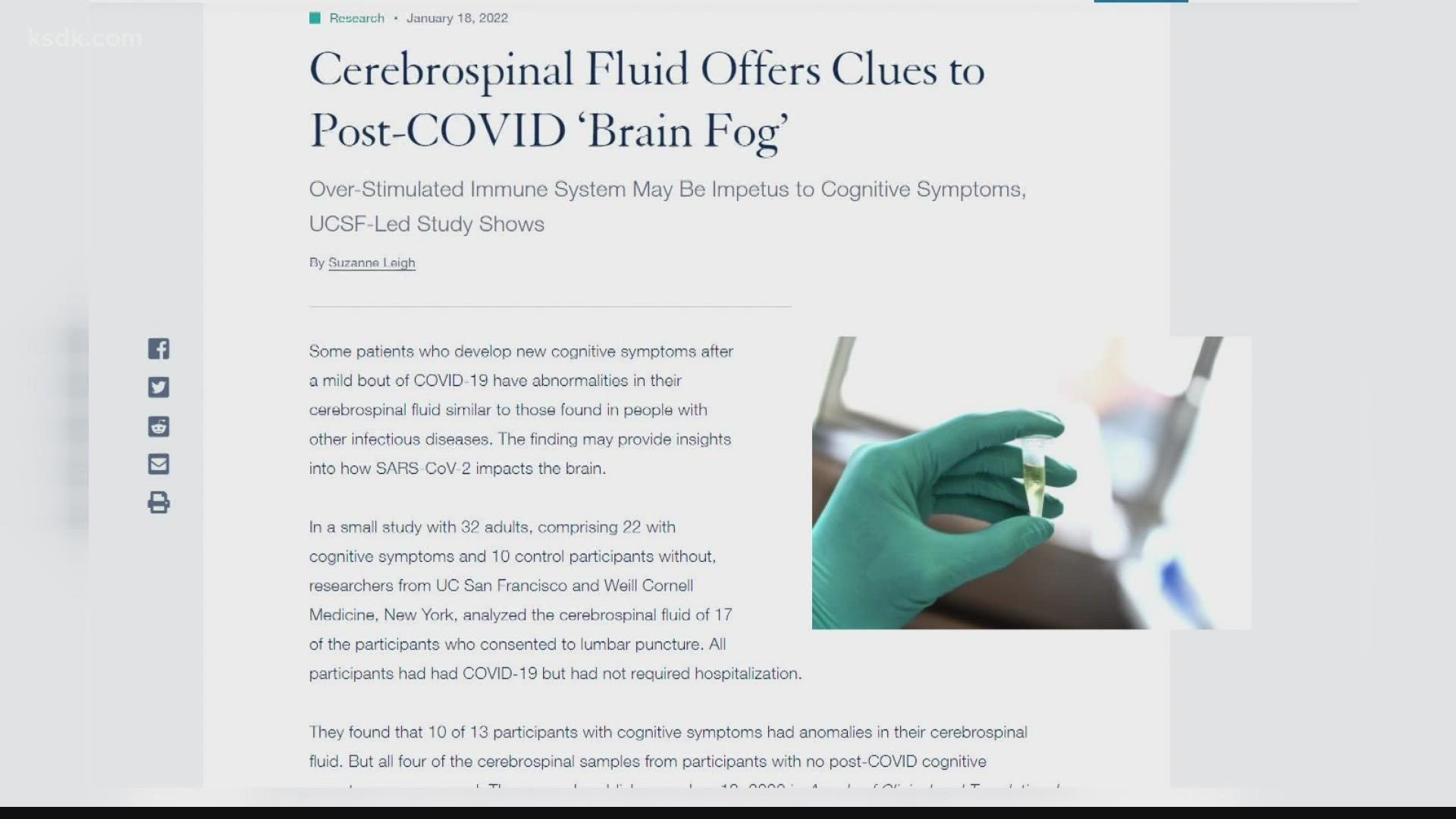SAN FRANCISCO — Last week we heard from veteran 5 On Your Side news anchor Karen Foss who was recovering from a breakthrough case of COVID-19. One of the lingering symptoms she deals with is brain fog.
Foss described it "like struggling to remember the words that you want to use. It’s difficult to pay my bills, you know, just doing little tasks that have a lot of detail have been difficult."
She's not alone. A recent study conducted by researchers at the University of California San Francisco pointed to an overactive immune response as the reason some people experience this cognitive issue. The study found abnormalities in the cerebrospinal fluid of people who'd experienced a mild case of COVID-19.
5 On Your Side spoke to two St. Louis area neurologists about brain fog and who's more likely to get it.
“This sort of exaggerated immune response is impacting the brain or it's evident in the brain compartment as seen by the spinal fluid. The virus itself isn't found in the spinal fluid,” said Washington University neurologist Dr. David Clifford.
SLU neurologist Dr. Ghazala Hayat explained there is no way to tell who might get brain fog.
“We do not have how we can predict but more than likely he or she may have had a little bit longer course, and then we just tell them, you have to take it easy,” said Dr. Hayat.
Dr. Hayat said it's possible if you've had a more severe case you could deal with the effects longer. As for treating it, doctors advise eating well, getting sleep and trying mental and physical exercises to help clear some of the brain fog.

